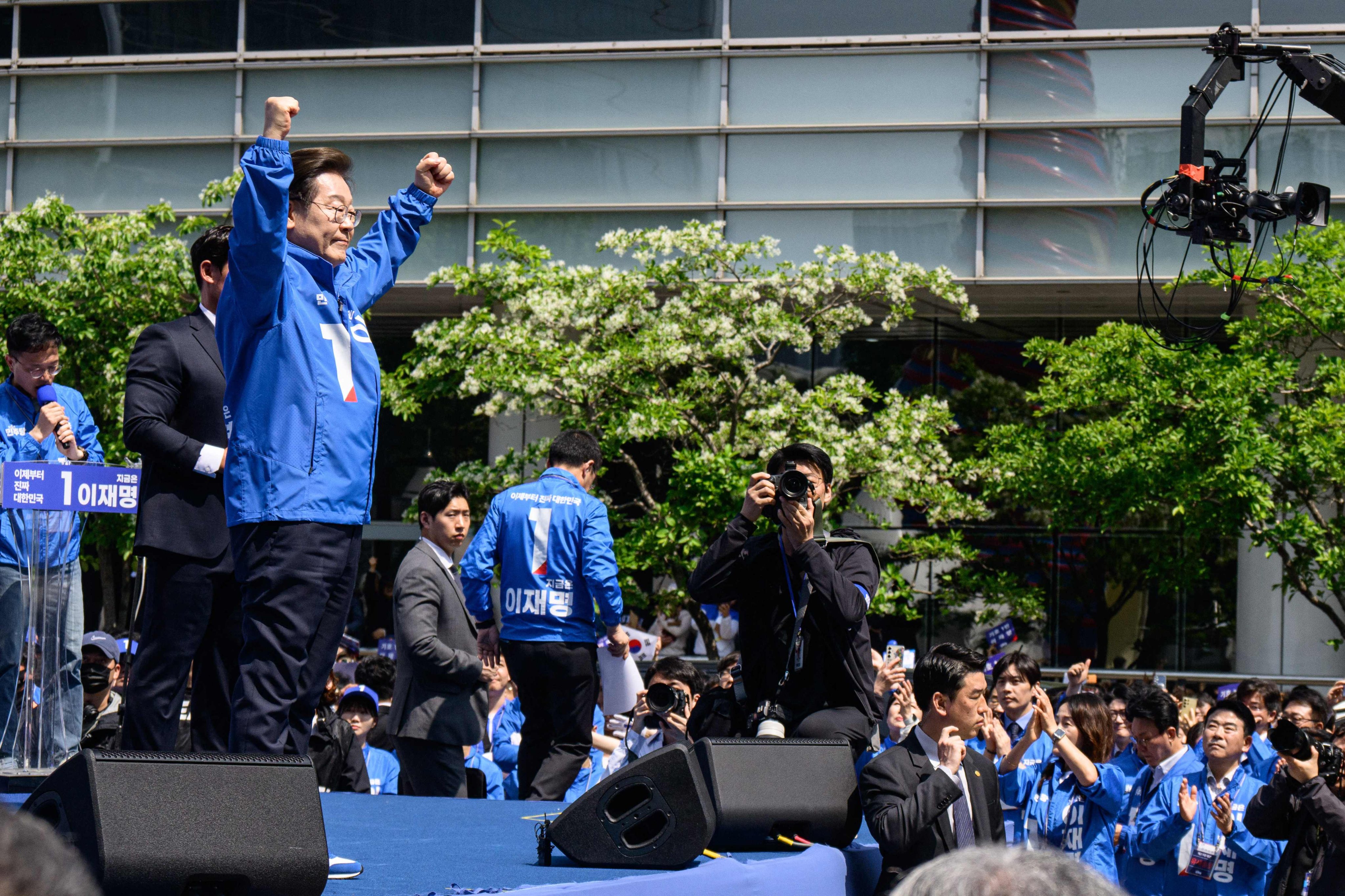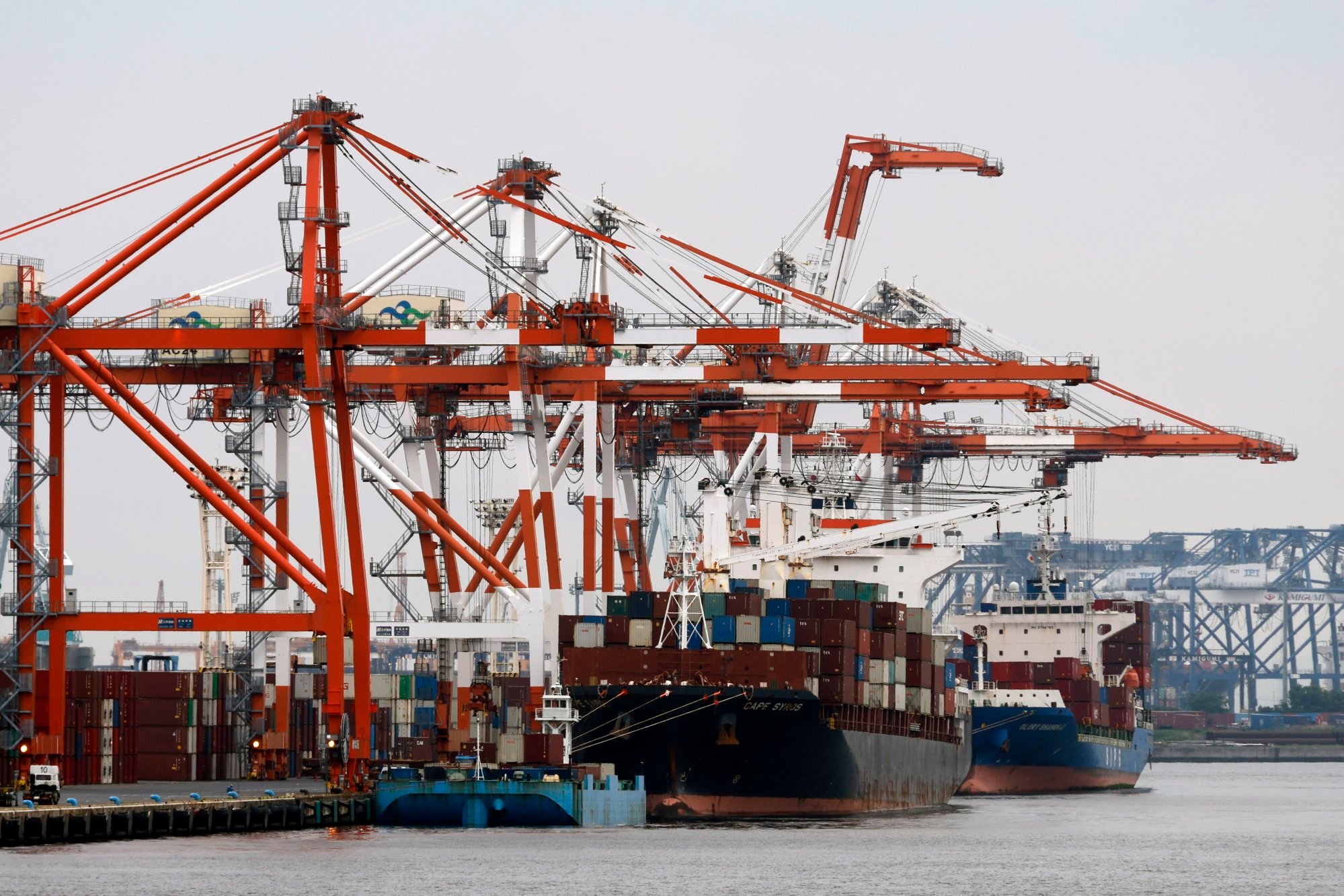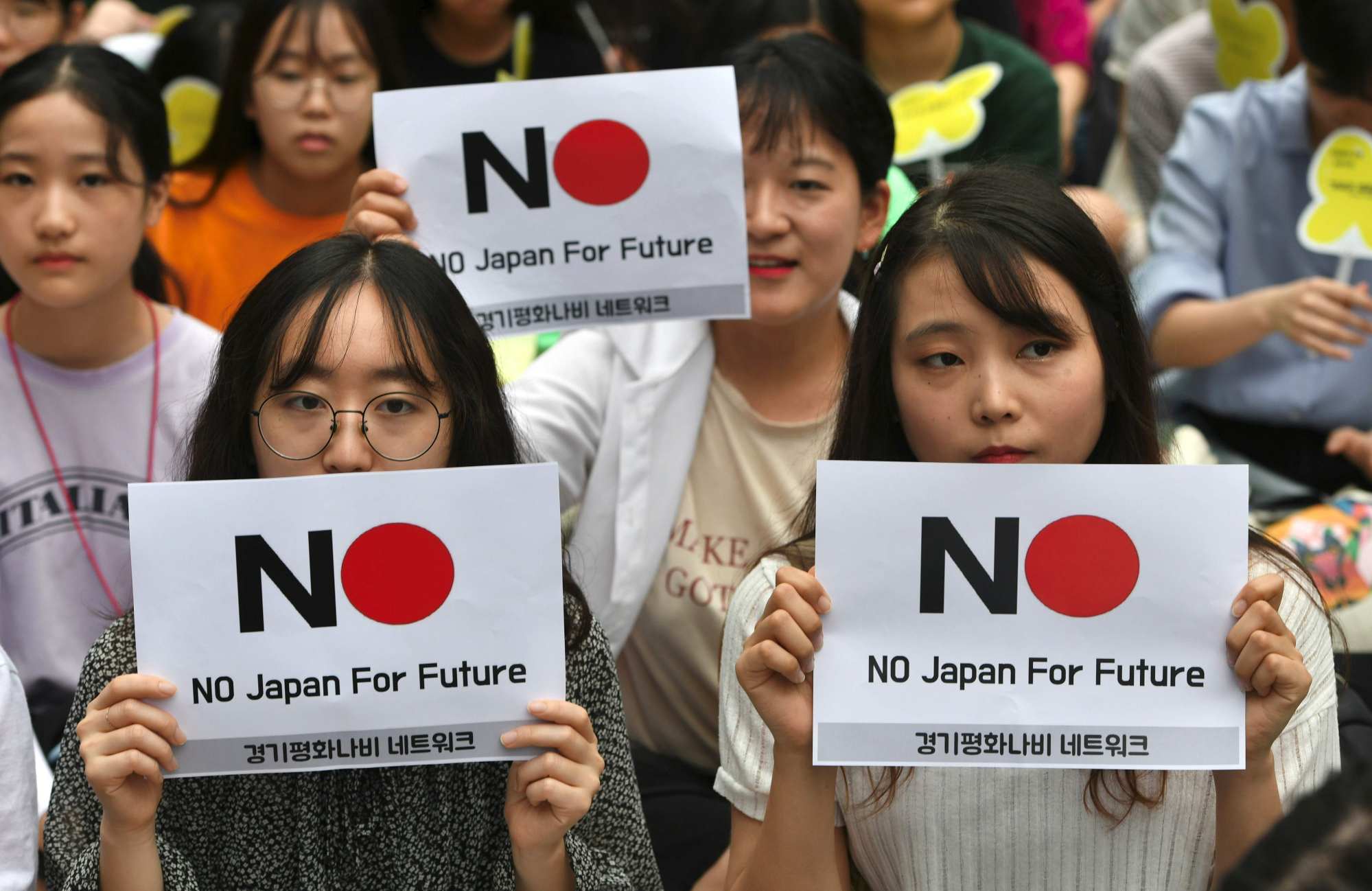Japan watches South Korea’s presidential polls for signs of warmer ties
Democratic front runner Lee Jae-myung has hinted at closer trade links, but Tokyo remembers past anti-Japan stances

Japan is watching South Korea’s presidential race with cautious optimism as Democratic Party candidate and presidential front runner Lee Jae-myung signals a potential shift towards closer trade and security ties with Tokyo – though analysts warn he could fall back on the anti-Japan playbook that has long energised his political base.
Lee, who polls indicate is the leading contender ahead of June’s snap election, has recently issued a flurry of remarks supportive of economic solidarity with Japan, a stance some in Tokyo interpret as pragmatic recognition of shifting dynamics in the region, particularly amid tensions between the United States and China.
On May 8, Lee told reporters in Seoul that he “completely agrees” with a proposal put forward by Chey Tae-won, chairman of the SK Group conglomerate and head of the Korea Chamber of Commerce and Industry, for economic solidarity with Japan as a counterpoint to global “rule-setters” such as the US and China.
Chey has been a vocal advocate for the creation of an economic trading bloc similar to the European Union that unites South Korea with Japan and nations from Southeast Asia.

Lee reinforced that support the following day with a written comment to a forum on regional security and economic challenges, chaired by a member of the Democratic Party, in which he described Tokyo as a valuable partner.
“With Japan being Korea’s fourth-largest trading partner, bilateral security cooperation has served as the foundation of the trilateral security partnership involving the US, which has contributed to ensuring peace in Northeast Asia and Korea’s prosperity,” Lee wrote.
There have also been suggestions that Seoul wants to resurrect plans for a trade pact if Lee wins the election. Talks on a bilateral free-trade agreement date back to 1998, but were halted in 2006 as relations began to deteriorate over differing interpretations of the two nations’ shared history.
Tokyo has consistently taken the position that it has apologised for its often brutal, 35-year occupation of the Korean peninsula in the early decades of the last century and that all claims for compensation were settled under the 1965 treaty that normalised bilateral relations.
A number of issues continue to simmer, however, and have at times boiled over into outright hostility.
Among the most contentious issues have been the “comfort women” who were forced to work in front-line brothels for the Japanese military during the war, the use of forced labourers in Japanese mines, shipyards and other heavy industry facilities, and the ongoing debate over the sovereignty of islets held by South Korea. These islets, located halfway between the two nations, are known as Dokdo in South Korea but are claimed as Takeshima in Japan.

Relations sank to a low in 2019 during the presidency of the last Democratic Party leader, Moon Jae-in, when he unilaterally dissolved a 2015 agreement between the two governments that expressed “apologies and remorse” to the former comfort women and established a foundation to compensate the victims.
Under the terms of the agreement, the matter of the comfort women was “resolved finally and irreversibly”, the two sides agreed.
Moon’s breach of that agreement has made the Japanese government cautious in its dealings with Seoul out of concern that future pacts will be similarly cancelled by a subsequent administration.
“From both South Korea and Japan’s point of view, the real problem is what is happening in Washington,” said Robert Dujarric, co-director of the Institute of Contemporary Asian Studies at the Tokyo campus of Temple University.
“The trade war is having a knock-on effect everywhere and there are now legitimate concerns about the credibility of the US deterrent in the region,” he told This Week in Asia.
Despite a degree of anti-US feeling in South Korea and Japan over the years, successive governments have consistently underlined the importance of the economic and security ties provided by the US and, as a consequence, the need to protect that alliance.
“Suddenly, because of what is happening in Washington, the US has effectively become the common enemy,” Dujarric said. “Even though the Democratic Party is left-leaning, they will not turn to North Korea as a partner but they will push to improve relations with their other neighbours, and Japan is the obvious candidate.”
Lee’s recent comments aim to position him as a friend of the business sector to “convince middle-of-the-road voters” that he is a safe pair of hands, according to Dujarric. This approach includes developing ties with other nations rather than demolishing them.
Toshimitsu Shigemura, a professor of politics and international relations at Tokyo’s Waseda University, is less convinced. He suggested that Japanese authorities were hoping for the best while preparing for a less favourable outcome in the event of a Lee victory.
“There are plenty of people in the government here who feel Lee is putting on a face for the electorate,” he said. “Lee has in the past supported the anti-Japan movement, he heads a left-wing party and he will name left-wing politicians to his cabinet.”
As governor of Gyeonggi province in 2019, for example, Lee was outspoken in his support of an unofficial boycott of Japanese products at the height of the anti-Japan movement.
“A strong anti-Japan stance has long been a central part of left-wing Korean parties because it wins them support and I see no reason why that might change now,” Shigemura said.
“The Japanese government is hoping that Lee will follow through on these campaign promises and work on closer trade and security ties, but this is a party that has in the past accused other governments of ‘collaboration’ for doing the very same thing,” he said. “The fear is that an anti-Japan policy in Seoul will be popular among ordinary people.”